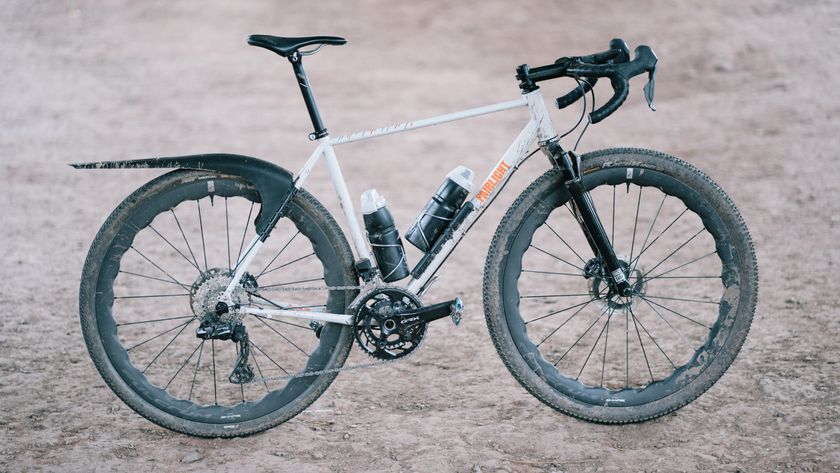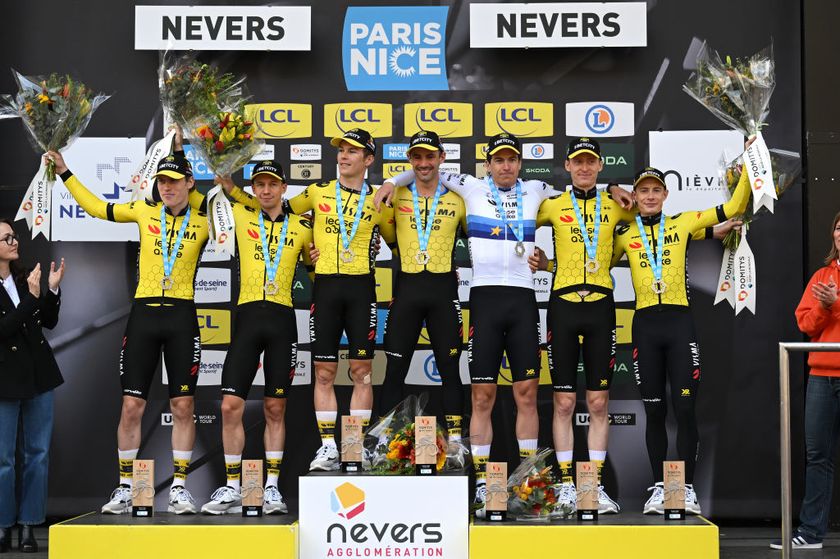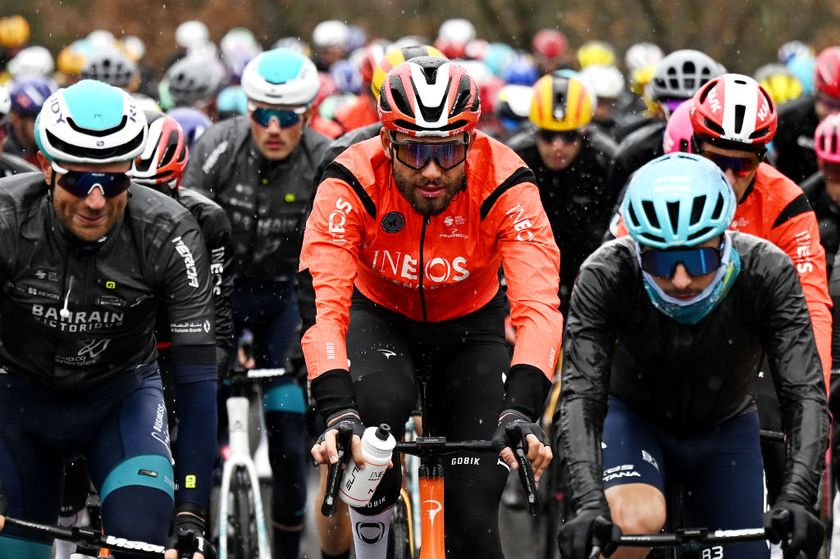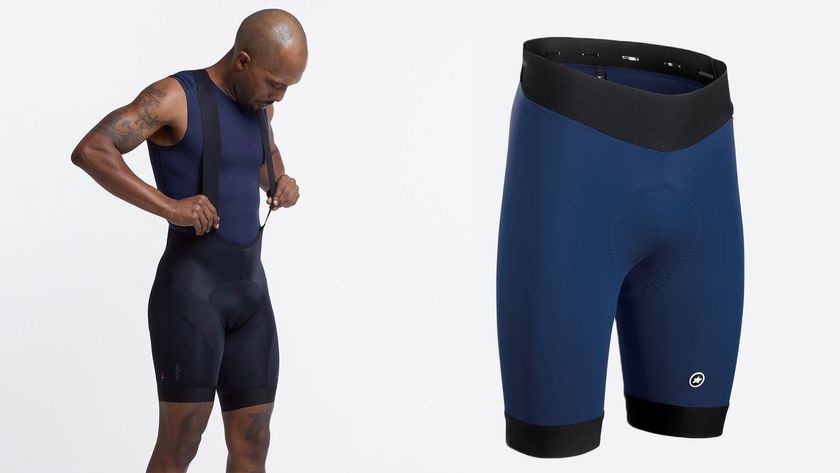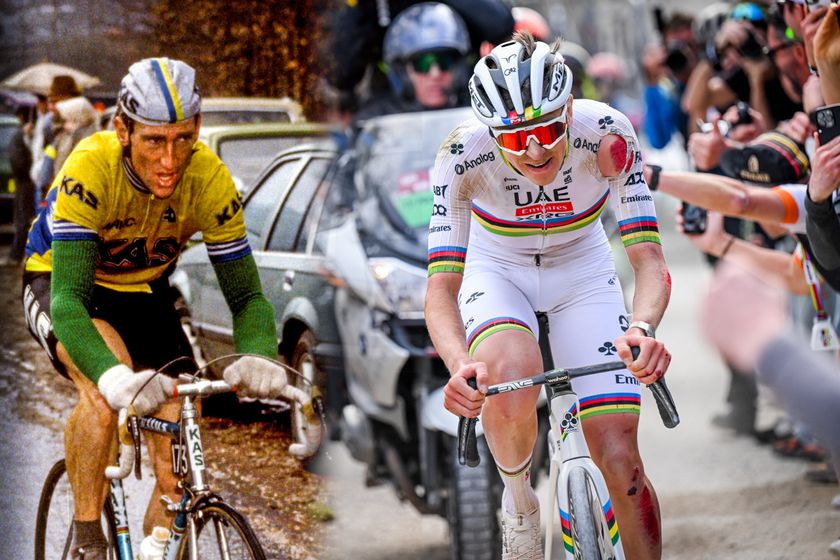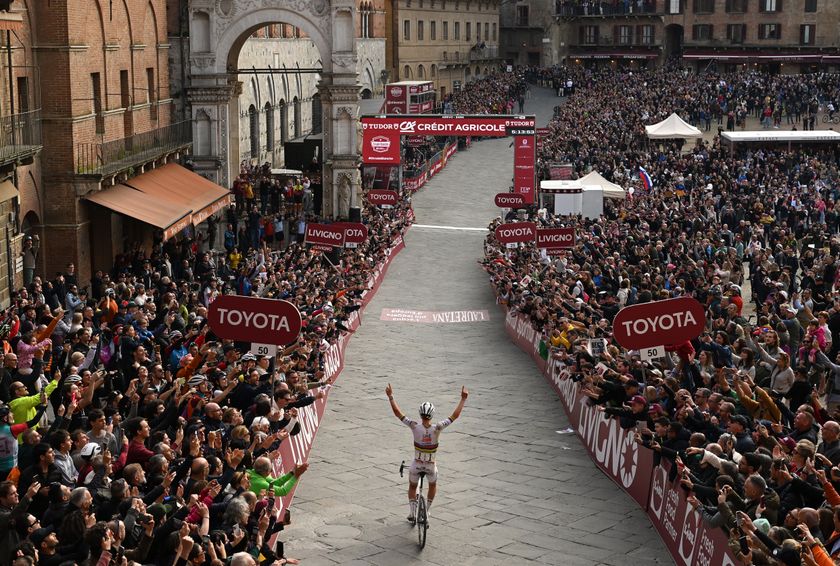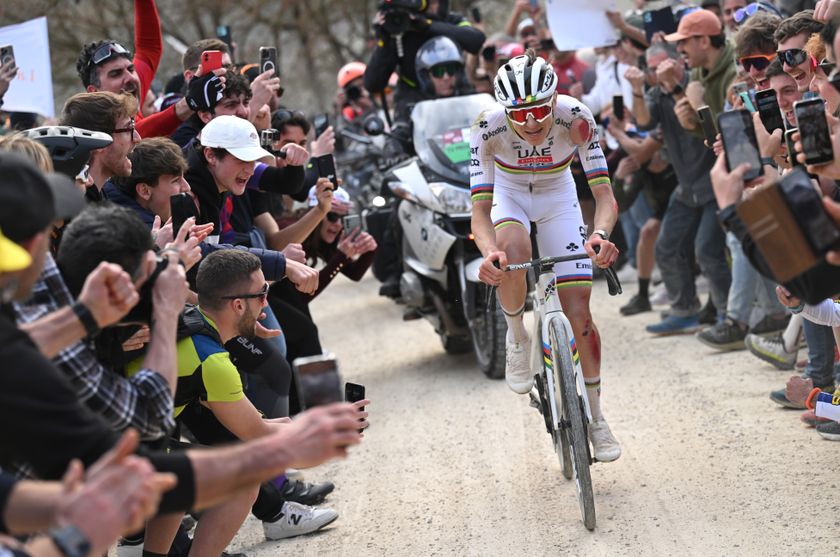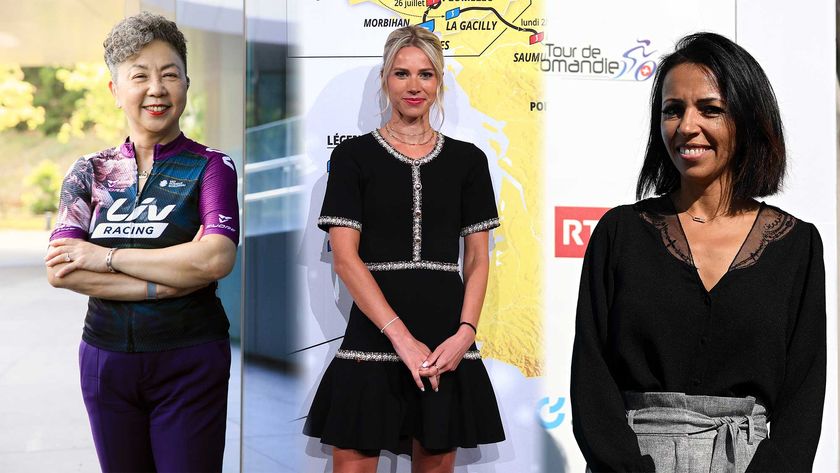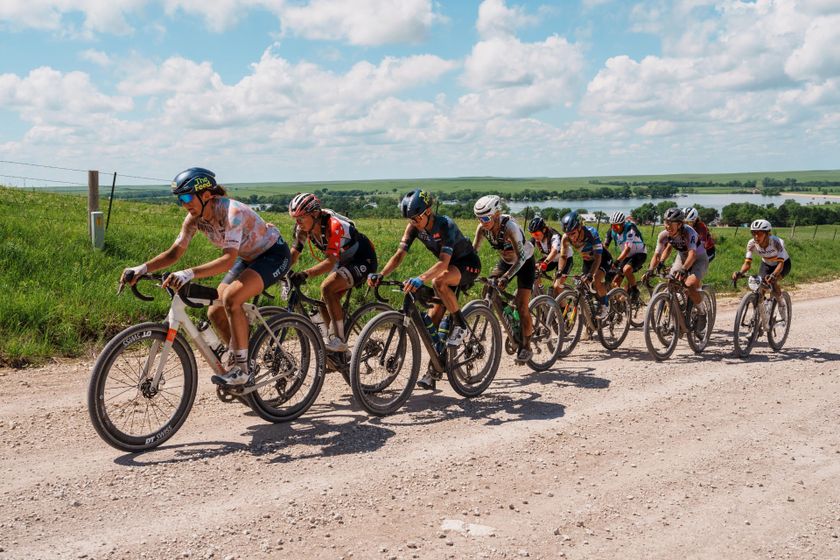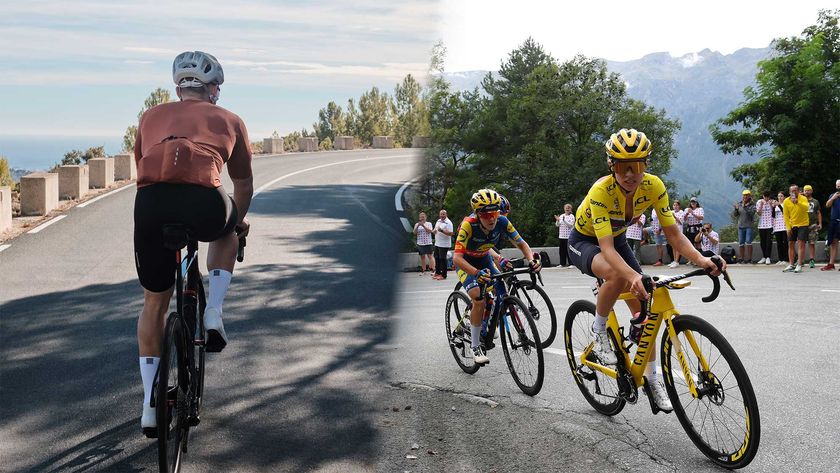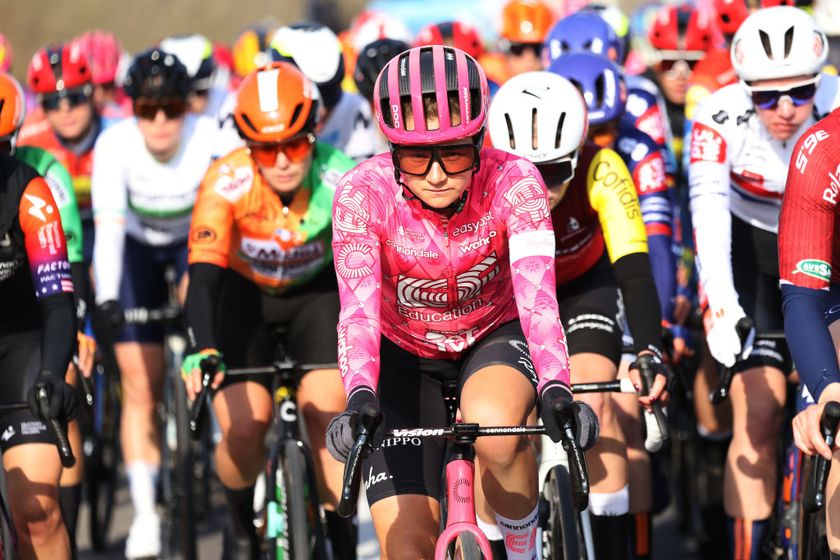Pursuit of Tour de France glory costs Team Sky their idealism
Transparency put aside following Wiggins TUE revelations






Those who grew tired of Team Sky's 'marginal gains' mantra will have read with a certain degree of irony as leaks from the Fancy Bears cyber-hacking group spread over the internet. Bradley Wiggins and Chris Froome, two of the most successful riders in recent years, were revealed as recipients of Therapeutic Use Exemptions (TUEs), and while they did not break any rules, the leak posed several important questions for Team Sky.
Froome's two TUEs, from 2013 and 2014, were already public knowledge, and although they caused a stir at the time, it was Wiggins' medical forms that made for the most intriguing reading.
Well before Fancy Bears' disclosure Wiggins had gone on record in his 2012 Autobiography 'My Time' stating that his only ever injections were for "my vaccinations" and "drips." More important for Team Sky was the fact that it had said that it would pull any rider from a race if he was suffering from allergies, rather than apply for a TUE. That was in 2013, when Dr. Steve Peters had told David Walsh, "We agreed as a team that if a rider, suffering from asthma, got into trouble with pollen we would pull him out of the race rather than apply for a therapeutic use exemption on his behalf."
While it must be stressed that Wiggins, Froome and Team Sky stayed on the right side of legality, with Wiggins's TUEs issued for asthma and pollen allergies, the team has raised questions over its policy towards TUEs, the grey area of corticoid steroid use and transparency.
If you missed the flurry of news and need a quick summation, here goes:
Bradley Wiggins was given six TUEs during his career. The first three were administered between June 2008 and December 2008, all for Salbutamol and covering long term asthma, a medical condition that one former teammate asserted was true when contacted by Cyclingnews. The second set of three TUEs were for Triamcinolone Acetonide, a corticoid steroid that was prescribed for allergies.
As well as treating allergies the substance is also known to stimulate fat burning or lipolysis, and therefore increases power. According to several riders who have taken it, it also subdues feelings of fatigue with almost immediate effects. One former user, Joerg Jaksche, has also told Cyclingnews that he believes it could provide around half the benefit of taking a blood bag or using EPO.
Get The Leadout Newsletter
The latest race content, interviews, features, reviews and expert buying guides, direct to your inbox!
The timing of the application for the second set of TUEs has also raised eyebrows within the cycling community, with two leading experts and one of Wiggins' previous team doctors, Prentice Steffen, questioning the necessity of needing the steroid in the build-up to major races. The TUEs were applied for and administered by Team Sky just days before Wiggins' Grand Tour challenges at the Tour in 2011, 2012 and the Giro d'Italia in 2013. He went on to win the Tour in 2012, but crashed out of the 2011 Tour and abandoned in Italy.
Ross Tucker, Professor of Exercise Physiology at the University of the Free State in Bloemfontain, laid out three general and hypothetical scenarios relating to the Triamcinolone.
"There are three options here," Tucker told Cyclingnews.
"Firstly, that the condition is real and has to be treated that way. The second is that the condition is there but the treatment, by using such a strong drug that has potentially sporting performance enhancing benefits, is opportunistic. The third is that the condition doesn't exist at all and it's just outright cheating.
"And by opportunistic, I mean that they're going beyond simply normalising an existing condition and into gaining an advantage from that condition."
Wiggins refrained from answering questions when contacted by Cyclingnews on Sunday but he has released two statements in the last 72 hours. The first led with the line, “nothing new here”.
For anyone who wasn't privy to Wiggins' medical records, and that's the vast majority of us, that statement looked untrue and given the very sensitive nature of TUE use – and the historical abuse of corticosteroids in sport – created more questions than answers.
For its part, Team Sky released a statement within 24 hours of the leaked information being made public.
"The Therapeutic Use Exemption (TUE) process, as set out by UK Anti-Doping, is 'a means by which an athlete can obtain approval to use a prescribed prohibited substance or method for the treatment of a legitimate medical condition'," Team Sky said on Thursday.
"Applications made by Team Sky for TUEs have all been managed and recorded in line with the processes put in place by the governing body. Team Sky's approach to anti-doping and our commitment to clean competition are well known."
Cyclingnews has reached out to Dave Brailsford for comment, too, but attempts have gone unanswered so far. Team Sky has talked about its commitment to transparency every season since it was formed and Dave Brailsford, at the Tour in 2013, laid down this challenge to the media: "Why don't you collectively have a meeting, get yourself together, get organised, and you tell me what could we do so we wouldn't have to ask these questions."
However, what Fancy Bears' disclosure achieved was to stimulate both a debate over Sky's ethics, as well as the wider issue sporting issue over the TUE system, management of medical conditions and the potential for abuse of corticosteroids under that system.
Part of the problem is that cycling hasn't evolved in many key areas. Drug abuse and cheating were so prevalent and proven a decade ago that any hint of similarity in procedural standards – such as the application of TUEs – reminds fans and the wider cycling community of the 1990s and early 2000. The fact that Wiggins was applying for the same substance as one taken by Lance Armstrong at the 1999 Tour de France only adds more scrutiny.
Floyd Landis, who admitted to doping during his career and was stripped of his 2006 Tour title, had this to say: "I've not been in the peloton in 10 years but those protocols with what you see from Wiggins and from Froome, that's exactly as how we would have done it, for performance enhancing benefit."
And this is where the grey area lies. Any rider can apply for a TUE and it's up to his team doctor to write it up, and then for the UCI to approve or decline it based on their own medical opinion and reference to the WADA code. But where does healing and health – the broad remit for having TUEs – lend itself in creating an advantage for athletes looking to exploit a system? It's impossible for a fan to know whether Wiggins or Froome were looking to exploit rather than heal.
While it's the athlete who is ultimately responsible for what goes into his or her body, it's the failing of the system and the governance of sport that allows for grey areas to exist. Did you know, for example, that athletes can use corticoids out of competition? WADA previously banned this but changed their rules several years ago because testing for this was cost-prohibitive.
TUE committee decisions
Joerg Jaksche, who was involved in Operacion Puerto and admitted to doping several years cited his own experience of using TUEs and corticosteroids. In relation to Wiggins' pollen allergy he said: "He's [Wiggins – ed.] also the only guy who has an allergy that travels in time and place with him. He does the Giro in May and the allergy is there, and then he goes to the Tour and it's the same. He's an unlucky guy.
"But let's say a rider has a TUE for the Tour. Then you're covered for the next month. So when I was riding if you were more risky you would take more and more cortisone as the race went on. It could be abused for doping purposes.
"EPO or a blood bag would give you maybe 5 per cent extra, while cortisone would give you maybe half of that. If your maximum power output on a climb for one hour is 450W then with a blood bag you could do 25 to 30 Watts more. With cortisone you could probably do 15 Watts more. It's still a lot but it has different effects. It gives you faster recovery and you can lose weight and burn fat. On the other side it also decreases pain and inflammation level."
Landis and Jaksche, for all their experience of the matter, are not doctors, although if you suffer from glaucoma Landis can fix you up these days, or so I hear.
Step forward Prentice Steffen. He is the chief medical officer at Cannondale-Drapac and has fought strenuously for clean sport for a number of years. He is also a supporter of the MPCC, the body that only a handful of teams now belong to. It's worth noting that if Team Sky were in the MPCC then Wiggins and Froome would not have been able to race if they had been using TUEs of this nature immediately before competition. One could argue it was coincidental, but Steffen never prescribed Wiggins a TUE for Triamcinolone Acetonide during the rider's one year at Slipstream Sports in 2009. Steffen argues that the responsibility for any potential level of TUE abuse lies with the authorities, such as the UCI, who ultimately decide on who can have a TUE and who can’t.
"With Bradley's intramuscular corticoid injections days before the Tour, that to me is worthy of eyebrow raising but I don't have the reason as to why that was even requested," Steffen told Cyclingnews.
"Presumably allergies, but if I was on the TUE committee I would say, 'you can't have intramuscular corticoids three days before your biggest event'. That doesn't make sense to me but again that's not on Brad, it's on the TUE committee for making poor decisions."
An instance in which Steffen believes that the TUE process was mismanaged came in 2014 when Froome and the medical staff at Team Sky applied for a TUE at the Tour of Romandie due to the rider carrying a chest infection* that had ruled him out of Liege-Bastogne-Liege. The UCI were willing to fast-track the application in time for the British rider to race and he went on to win the event for the second consecutive season.
The substance involved was Prednisone, a glucocorticosteroid, a derivative of cortisol. According the Sunday Times, Froome had used the substance in 2013 for a similar health issue.
"The time where I think there was a misuse of the TUE system was with Froome in 2014 and the Tour of Romandie. That wasn't correct but it wasn't on Froome or Team Sky's side, more the UCI. They completely messed the process. It's really on the UCI to review the cases and make sure that they’re issued correctly," Steffen said.
Team Sky's utopia falls apart
When Team Sky burst onto the scene in 2010 it promised to do things differently, and most importantly, in a clean way. The team would not work with doctors previously associated with cycling's dodgy past and the thin blue line that adorns Sky's racing kit was used as an analogy, in which they stressed that going outside or over the lines would not happen on this team.
Since Team Sky's first race we have learnt about rounder wheels, pineapple flavoured water, better handwashing techniques, fluffier pillows, checking the weather before time trials, attacking on descents, and a cut on Nutella at the dinner table. Ground breaking stuff.
And while no one can dispute that Team Sky has hired some of the best riders in the world, brought on talent and spent huge sums on support systems, it has also made some hiring decisions which seem completely at odds with public statements about not touching anyone with any connection to doping
The Geert Leinders experiment
Geert Leinders worked at Rabobank from its inception until 2009. Guilt by association would be unfair on its own, but the Dutch outfit doped riders throughout its existence, as illustrated by the testimonies under oath of Levi Leipheimer and Michael Rasmussen and separate confessions from riders such as Thomas Dekker. Cyclingnews has attempted to contact Leinders but he has not responded as of yet.
Team Sky picked up the Belgian doctor in 2011, after it failed to mount a Grand Tour challenge in 2010 and the tragic death of a team carer, Txema González. At the time Team believed they needed a doctor with experience and Leinders was vetted by Dr. Steve Peters. He worked 67 days with the team in 2011 and another 44 days with them the following year, as reported by the Guardian. He was at Paris-Nice, the Tour of Romandie and the Dauphine, as Wiggins won all three, though Wiggins has given contradictory statements over Leinder's involvement.
In 'My Time' he said: "We need guys like Geert Leinders," but since the Fancy Bear hack, Wiggins' press office has released a statement, saying: "Brad has no direct link to Geert Leinders. Leinders was the 'on race' doctor for TEAM SKY for short period and so was occasionally present at races dealing with injuries sustained whilst racing such as colds, bruises etc."
At the same time the Rabobank affair blew up in the Dutch media, Sky began an internal investigation into how on earth it had managed to hire a doctor with connections to historic doping. This period, around 2012, is critical in order to understand how Team Sky operates internally, ethically and with the public via the media.
It hired a doctor with a highly dubious past, which could have ascertained by just asking its own staff, Steven De Jongh and Matt Hayman, both of whom were at Rabobank and worked at Sky. Team Sky applied for TUEs for Bradley Wiggins that allowed him to be injected with corticoids just before major objectives, and at the same time was preaching zero tolerance to the press, and fired Steven De Jongh and Bobby Julich for their involvement in doping almost two decades previously. It begs the question: how could Team Sky be so naïve in its recruitment yet so pious in its stance?
"They're not transparent. Let's put it that way," Jeroen Swart, a sports doctor who has worked closely with Froome told Cyclingnews.
"The other concern is that the team once said that they would not apply for TUEs while in competition. That's a contradiction, even though there's nothing wrong with changing policy if it's inside of the rules. The other aspect is the time. He didn't have the injection before the Dauphine, Tirreno and rode the Tour a few months later – it coincides with three of the biggest goals in the athlete's career on the road."
Tucker goes further. "It says," he adds in relation to Team Sky's behaviour, "that any advantage possible will be explored at the potential expense of principle, promise, ethics and legality."
That's the thing about transparency, it's all or nothing.
========
* Since the publication of this article a spokesperson has contacted Cyclingnews, stating: "Chris Froome was recovering from having had a chest infection the week before Liege-Bastogne-Liege [ed. 2014]. Pulling out of LBL was precautionary as he still had reduced lung function due to residual inflammation from the infection. He started Tour de Romandie as he had no other symptoms but the intense effort and cold air caused an exacerbation of Chris's asthma."
Daniel Benson was the Editor in Chief at Cyclingnews.com between 2008 and 2022. Based in the UK, he joined the Cyclingnews team in 2008 as the site's first UK-based Managing Editor. In that time, he reported on over a dozen editions of the Tour de France, several World Championships, the Tour Down Under, Spring Classics, and the London 2012 Olympic Games. With the help of the excellent editorial team, he ran the coverage on Cyclingnews and has interviewed leading figures in the sport including UCI Presidents and Tour de France winners.
